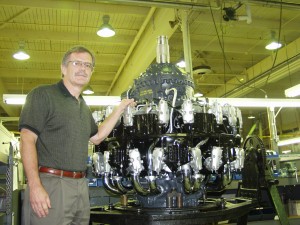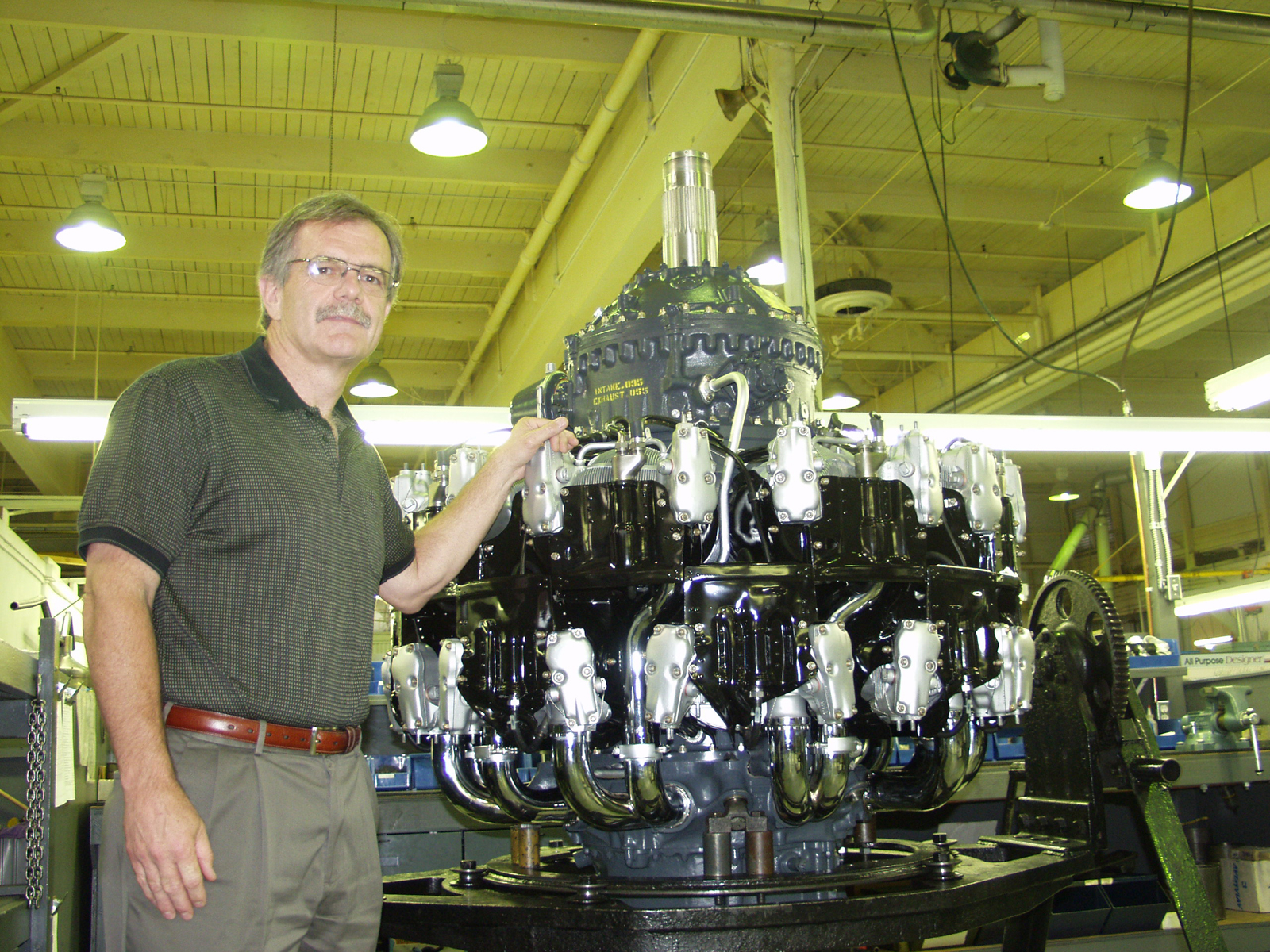By Terry Stephens

Dave Cort is president of Precision Engines, a world leader in maintaining and overhauling Pratt & Whitney and Curtiss-Wright radial engines.
There’s a good reason why Dave Cort, president of Precision Engines, LLC, in Everett, Wash., is a familiar face at two major air shows each year. Radial engine aircraft are featured at the Experimental Aircraft Association’s AirVenture in Oshkosh in July and September’s Reno Air Races. Servicing radial engines is Cort’s business.
In an age of giant jet engines, Precision Engines has established a reputation as the world leader in keeping warbirds and other piston aircraft flying. It’s a major supporter of organizations such as Warbirds of America, whose members own and fly vintage military aircraft.
“For more than 50 years, the company has serviced radial engines at Paine Field, in the same building but under a variety of names and owners,” Cort said. “Today we’re one of the best equipped facilities in the world for overhauling and repairing radial engines. We keep old Corsairs, Canadian Bombardier CL-215 fire bombers and other aircraft flying, particularly any plane with Pratt & Whitney or Curtiss-Wright radials.”
As a major source for radial engine parts, service and expertise, the company is invaluable to cargo fleets, nostalgia operators, collectors and museums throughout the world. Precision Engines’ customers are located in the United States, Canada, Europe, Australia and New Zealand. Engines supported by the company include the Pratt & Whitney R2800, R1830 and R2000 as well as the Curtiss-Wright R1820 and R3350, in a variety of civilian models and all military versions.
The building Precision Engines leases from Snohomish County/Paine Field Airport (PAE) was once a maintenance facility for Alaska Airlines. The equipment in it was sold to private owners in 1964 when the airline moved its fleet of DC-6s south to Seattle-Tacoma International Airport (SEA). In later years, the engine repair business was renamed several times under different operators, finally becoming known as Precision Airmotive in 1981.
In 1996, the year Cort was hired as general manager, the company became Precision Engines Corp. Then, in 2004, the business split into two separate operations: Precision Fuel Components, LLC and Precision Engines, LLC, with Cort as president.
“The fuel components business evolved from a concern of the company’s former owners in the mid-1980s,” Cort said. “Supplies and service support for radial engine carburetors made it difficult to get good diaphragms, among other things. That’s when they made arrangements with Bendix and others to gain the right to manufacture those old parts.”
Today Precision Engines is the only source for new Bendix Stromberg pressure carburetor parts. The company also makes internal engine parts that have become difficult to find, primarily for Pratt & Whitney radials, guaranteeing the ability to keep radial engines in use for many years to come. Accessories kept in stock for radial engines include starters, generators, actuators and motors, along with fuel pumps and switches, cylinders, thermostats and oil pressure regulators. Additionally, Precision Engines has acquired the inventory and technical documentation for Titeflex ignition harnesses and related parts.
The company’s worldwide reputation for excellence continues to come from its expert workmanship, advanced overhaul equipment and strict standards of quality control. Cort also noted that Precision Engines has the most modern radial engine test facility in the industry.
“Our precise overhaul standards are even more stringent than those set by Pratt & Whitney,” said Cort. “We really maintain that kind of quality, including publishing our own recommendations on oiling and caring for the engines.”
The firm’s quality work depends on precision equipment and employees, Cort said. He came to Precision Engines as a pilot. He’s also an airframe and power plant-certified mechanic with 16 years of experience from working on DC-6s and DC-3s in Alaska.
The company’s workers are seasoned professionals, averaging 15 years with Precision. His present problem is finding qualified people who know how to service radial-piston engines.
“This new generation doesn’t work with their hands,” Cort said. “They’re not mechanically inclined. That’s the challenge for us.”
For more information, visit [http://www.precisionengines.com].











